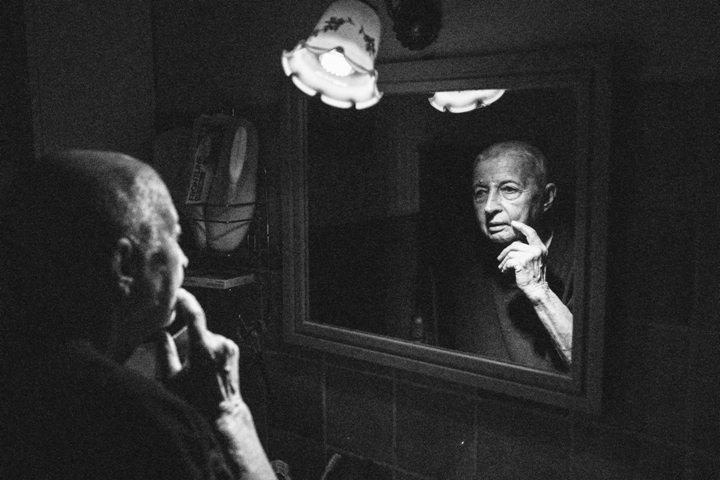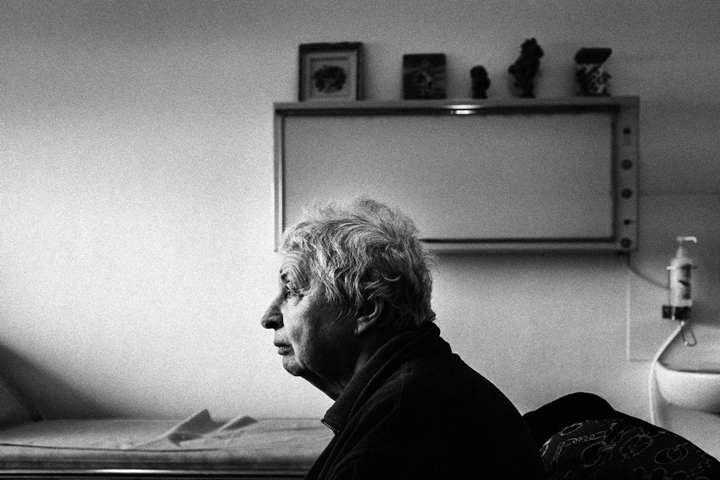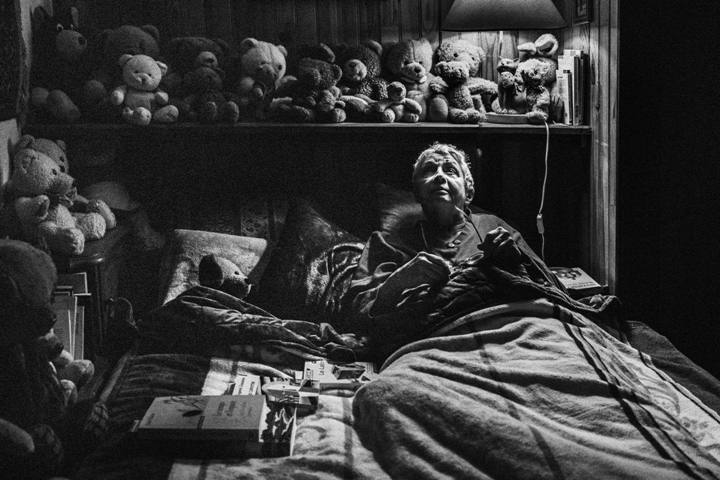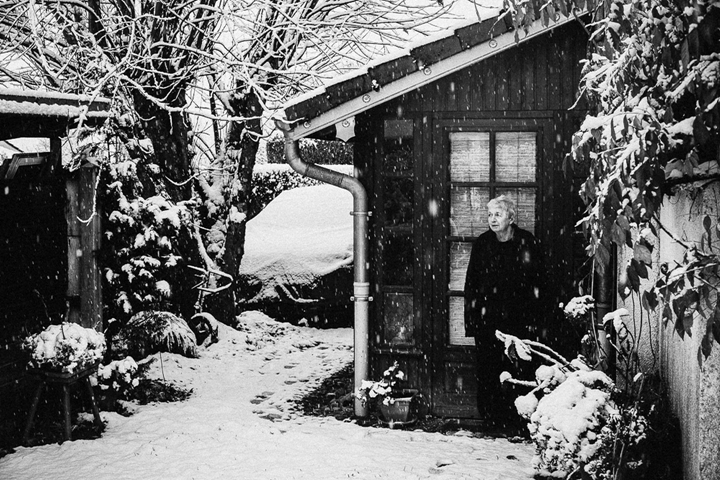Francesca
Text and photos by Maria Mosconi
Abridged by Syharn Shen (沈思含)
Francesca
Text and photos by Maria Mosconi
Abridged by Syharn Shen (沈思含)

Francesca, my mother, suffers from Parkinson's disease, an incurable illness that entails a slow process of the destruction of her neurons.
Francesca, my mother, is a very lonely woman, an intellectual who decided in the 70's to bring up her child alone. She has learned twenty-five languages and speaks ten of them fluently. She has intensely loved classical music and has played many instruments. For almost 60 years, in the continuous flow of a colorful phantasmagorical universe, she exorcised her fears, and transcribed the world into paint. Francesca's Parkinson's disease does not affect her intellectual capacities. She lives the degradation of her physical abilities in full awareness but the disease does not alter her desire for knowledge.
In 2018, after several years of pain, she was discovered to have Parkinson's disease at the age of 71. I wasn't sure what that meant. I only knew that it was an incurable neurodegenerative disease associated with motor symptoms. I obviously learned more with Francesca. As there are two of us in the family, we had to support each other, think together and move forward in this very heavy end-of-life story, full of emotions and pain for Francesca.

Francesca, on her first appointment with a neurologist to establish the diagnosis of Parkinson's disease.
She fell ill in a rather poor French region of Haute-Saône. It is a medical desert and it is very complicated to get an appointment with a neurologist. There is often a six- to ten-month wait. We managed to have, after ten months of waiting, an appointment in 2020 with Dr. Elbaz, who does a thorough work on Parkinson's disease.
Then Covid came along, and Francesca did not have the support she needed because she could not see a psychologist nor a physiotherapist, even though it is absolutely mandatory for Parkinson's patients to move their bodies.
It is my mother who managed the balancing of the treatment that the neurologist proposed to her based on dopamine. There is only one medication, Sinemet, which works but not in the long term, and a very particular and progressive dosage is to be respected.
I started photographing her in 2018. It was a way for me to put a distance in front of my emotions and the difficulty that my mother was going to start experiencing in her movements. She quickly forgot that I was photographing her. We were chatting naturally and that's how the camera came into our lives as a silent witness to the story that was playing out.

Francesca, surrounded by her many teddy bears, between learning new languages and philosophy. Reading is her last resort to escape and forget the dull anguish caused by the disease.
I took many pictures while being Francesca's helper in all areas of her life, administrative, medical, psychological, and logistical.
I set up a lot of help, starting with home help and cleaning, then extra help to get her up, get dressed and get her to bed, plus a meal delivery service every day. Then, nurses came by daily to check that she had taken her medication. It was a constant coming and going of people, with a key box at the entrance to her house and instructions for each and everyone. I was taking care of all this from 400 km away. It was very hard for me and very complicated for her too. Each time I spent with her for four to five days every month and a half, I left exhausted.
The disease took an extreme turn because Francesca has an aggravated version of the disease. It is important to know that Parkinson's disease covers at least twenty different forms. Unfortunately, hers is found in the 20% of the most severe cases, which do not cause tremors but a very rapid degeneration of the neurons. While some patients have stages that last three to five years, for Francesca, it is almost every two three months. The rhythm of the alterations is fast and the disease crosses stages irremediably.

Through taking photos, I wanted to transcribe all the love I have for my mother and especially the feeling of pride to see this woman so courageous to fight in spite of a strong depression related to what happens to her.
In April 2022, after we both realized that the help at home was no longer sufficient, I brought Francesca to the Ehpad (establishment for dependent elderly people). I bore the heavy responsibility of taking my mother to a nursing home, knowing that she was leaving the home she loved so much, forever.
Francesca is supported by the staff who take care of her 24 hours a day, helping her get up, get dressed, eat, and go to bed. But as she is about 20 years older than the other residents, the interactions with others is psychologically difficult for her. Each time I visit her at the Ehpad, she asks me to bring her books on Parkinson's disease, books of 450 pages on new methodologies.
The question of the end of her life is a discussion that we have more and more often. I am at a loss because French law does not allow euthanasia or assisted suicide. As I can't see myself getting into a car with her and taking her on a last trip, I try to make her feel as comfortable as possible by being there and listening.
Francesca knows very well where she is going and what will happen to her. She knows that she is very sick and these thoughts run in a loop in her head every day, every hour, every minute and it never stops.
Contact Us | Plan a Visit | Donate
8 Lide Road, Beitou 11259, Taipei, Taiwan
886-2-2898-9999
005741@daaitv.com
©Tzu Chi Culture and Communication Foundation
All rights reserved.
